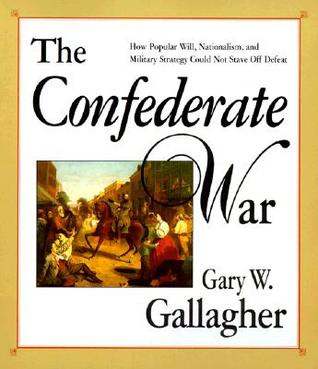Imagine America invaded by a foreign power, one that has quadruple the population and industrial base. Imagine that this enemy has free access to the world’s goods as well as an inexhaustible supply of cannon fodder from the proletariat of other countries, while America itself is tightly blockaded from the outside world. New York and Cincinnati have been taken. For months, Boston and Chicago have been under constant siege, the civilian population driven from their homes. Enemy forces roam over large parts of the country burning the homes, tools, and food of the noncombatants in a campaign of deliberate terrorism. Nearly 85 percent of the nation’s able-bodied men (up to 50 years of age) have been called to arms. Battlefield casualties have run to 39 percent and deaths amount to nearly half of that, far exceeding those from any other war. On the other hand, the enemy, though its acts and domestic propaganda indicate otherwise, is telling the American population that it wants only peace and the restoration of the status quo antebellum. Lay down your arms and all will be as before.
What would be our state of morale in such conditions? Americans have never suffered such misfortune, have they? Alas, they have. This was the experience of the Southern people from 1861-1865 in their lost War for Independence.
Gary Gallagher has established himself of late as one of the leading historians of the period, a somewhat surprising and consoling occurrence since he is an old-fashioned historian who relies on evidence and is not afraid to challenge fashionable interpretation by following where the evidence leads. The Confederate War examines with skill and careful research the forgotten Southern experience, which was marked by greater suffering and sacrifice than that ever made or endured by any other large group of Americans. Gallagher presents an important and ignored perspective for those who wish to grasp the sweep of American history in the cold light of reality rather than through the rose-colored glasses of democratic globalism.
War, in the experience of the American people, has typically brought suffering and death to only a small part of the inarticulate youthful population, mostly from the poorer classes; dislocation and discomfort to a larger segment; high wages and profits in general; and a great glow of patriotism and righteousness to the many. This was war as the North knew it (except that dissent was a great deal more widespread than has been admitted), setting the pattern for subsequent American conflicts. (We only have to think of the delight with which so many celebrated, from the comfort of their recliners, the incineration of Iraqi women and children.) It was not so, however, for the Southern people in that period. (Our author says nothing, of course, about Reconstruction.) How hard the Southerners struggled for independence from the American Empire has been, and continues to be, suppressed by a nationalist culture that can only wonder:
How could any group possibly have dissented from the greatest government on earth? But a very large number of Americans did not consent to that government (the regime, after all, was supposedly founded on the consent of the governed). They were willing to put their dissent on the line in a greater sacrifice than any large group of Americans has ever been called upon to make. Until finally, as a disappointed Union officer quoted by Gallagher remarked: “the rebellion [was] worn out rather than suppressed.”
The burden of The Confederate War is that military defeat—not lack of faith in the cause, internal class struggle, want of sufficient nationalist theory, or any other such thing offered by recent historians as explanations—ended the War for Independence. Historiographically, Gallagher’s work is juxtaposed, with evidence and close reasoning, with a raft of literature speculating upon the weaknesses of the South. One learns very early in academic historical training that a sure road to success lies in finding a new twist on South-hating, supported by quotations selected out of context and references to currently fashionable abstractions that pass for reasoning, such as that the South was not only evil but weak and stupid, its War for Independence having been waged ineffectively, inadequately, and incompetently. I can cite several cases where books along these lines have catapulted their authors into professional celebrity and endowed chairs. Writing history is easy if you only need theory and not evidence.
Gallagher, by contrast, has documented the obvious: the South was militarily defeated only after an extraordinary effort unmatched before or since by Americans. Given the sad state of American scholarship, to accomplish that much is cause for celebration.
[The Confederate War, by Gary W. Gallagher (Cambridge: Harvard University Press) 218pp., $24.95]

Leave a Reply